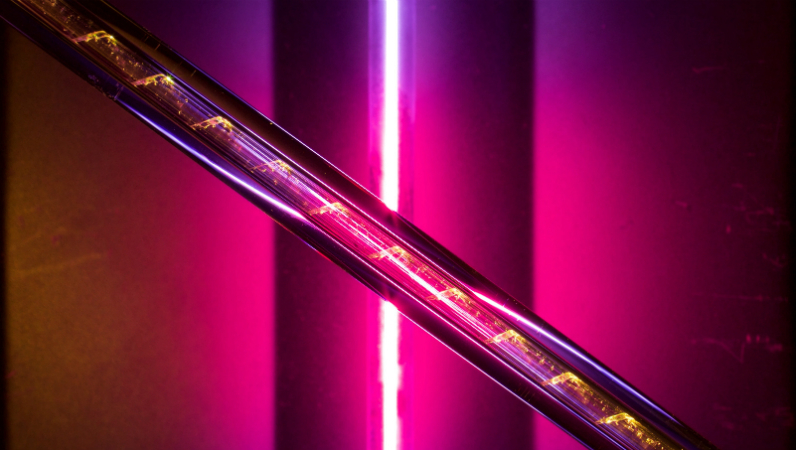Scientists at Bath are collaborating on a major project that aims to transform the treatment of dangerous infections and ‘inoperable’ cancers by finding creative ways to harness the power of deep-ultraviolet light.
The five-year, £6.1 million U-care project, led by Heriot-Watt University, is among six research projects announced today. The U-Care project is funded by the Engineering and Physical Sciences Research Council (EPSRC) and UK Research and Innovation (UKRI). Collectively, these six projects will use technological solutions to tackle complex problems in healthcare. The aim is to transform care and treatments in the NHS by 2050.
Scientists from Bath will design advanced optical fibres that are capable of delivering short-wavelength deep-ultraviolet light within the human body. Longer-wavelength ultraviolet light is well-known to kill pathogens but also to damage human DNA and cause cancer, hence the well-known need to avoid too much exposure to the sun. However, shorter-wavelength UV light is absorbed by proteins in the outer parts of human cells to a much greater degree than the UV light emanating from the sun, making it a strong candidate for safe and potentially life-saving medical treatments.
Professor Tim Birks from the Department of Physics explained: “Our idea is to exploit the fact that the deep-ultraviolet light never reaches the nuclei of human cells. Bacterial cells are much smaller. They don’t have nuclei so you can destroy them with deep-ultraviolet light without damaging the patient’s DNA.”
Hospitalised patients (including those with Covid-19) are highly susceptible to secondary bacterial infections, many of which are resistant to antibiotics. Such infections are a particular concern in intensive care units, where patients are exposed to bacteria from ventilators and catheters. If U-care yields results while the Covid-19 pandemic is ongoing, the new technology may be deployed to treat patients against secondary lung infections triggered by the coronavirus.
“It’s not a project that aims to help the sick now, but if we make rapid progress we hope to be ready for future pandemics,” said Professor Birks, who is leading the investigation for Bath.
U-care will also give surgeons a tool for operating with more precision. Cancer surgeons will be able to remove tumours that are currently left untouched because there is no reliable way of excising them without affecting the surrounding tissue.
The challenge for the Bath researchers is to produce optical fibres to direct the deep UV light to confined regions of the body, such as the lungs, surgical sites and the urinary tract of patients using catheters long term.
“It’s hard to make fibres on that micro-scale,” said Professor Birks. “We need to find a solution that can eventually be made cheaply and routinely.”
U-care is a collaboration between Bath, Heriot Watt University and the University of Edinburgh. Scientists at Heriot Watt will investigate light sources in a bid to find the most effective means of producing deep UV, while colleagues at Edinburgh will be examining the effects of deep UV light on human cells.

